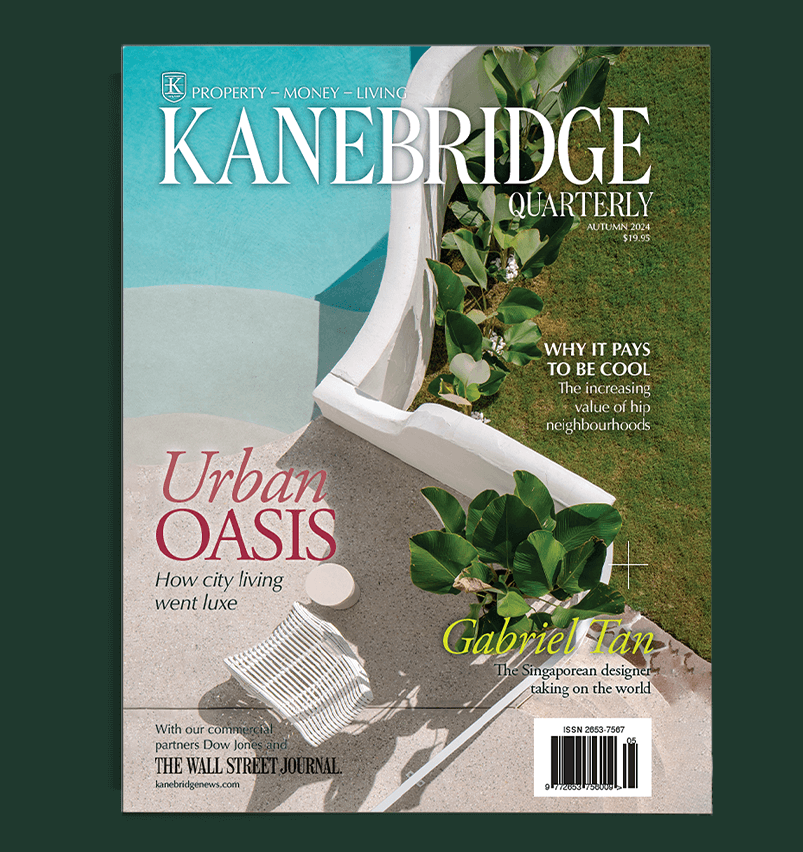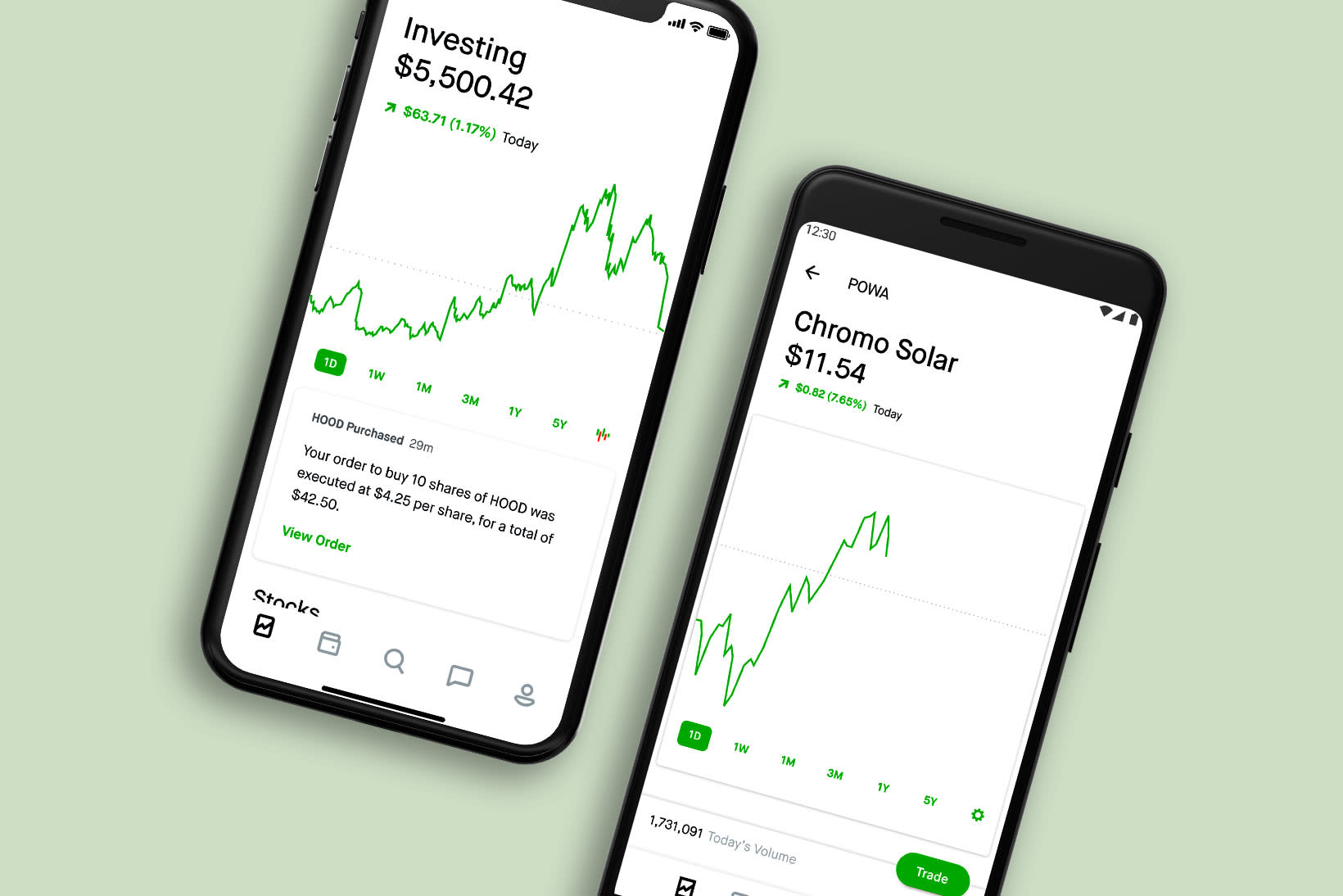The Three Big Transitions Reshaping Finance
Three phenomena have exploded since COVID: digital assets, Robinhood, and SPACs.
Ever since Covid disrupted our lives, two themes have emerged. First, a feeling that we are living in an antechamber to a new and still-undefined era. And second, a pattern of hybrids, from homes converted into hybrid spaces of living/working/schooling, to expectations of a new office hybrid that will mix virtual and in-person meetings.
But what about the world of finance and securities markets? There, too, we can find patterns of transition and hybrids. Consider three phenomena that began before Covid but have exploded in growth since then: digital assets, Robinhood, and SPACs.
Start with the rise of cryptocurrencies, digital tokens and other such assets, which remain very much in a transitory stage (like the “Wild West,” SEC Chairman Gary Gensler recently observed). Even as the crypto asset class has grown to an estimated $1.6 trillion, basic questions remain unanswered. Are digital tokens securities or commodities? Are decentralized finance platforms really securities exchanges? Are data miners and other digital service providers really broker-dealers? Should the SEC permit Bitcoin ETFs? And who should regulate these products, services and entities—the SEC, the CFTC, or banking regulators?
Gensler has called on Congress to give the SEC “additional authorities to prevent transactions, products, and platforms from falling between regulatory cracks.” Specifically, he wants “additional plenary authority to write rules for and attach guardrails to crypto trading and lending.” And the U.S. House has passed a bill (H.R. 1602, the Eliminate Barriers to Innovation Act of 2021), which would require the SEC and CFTC to establish a working group on digital assets.
Some of what passes as crypto innovations pretty clearly seems to be old-fashioned investment products dressed up in digital garb. That would include any stablecoins that function like money market funds and those tokens that fall within the definition of a security. Nonetheless, there is no denying that crypto mixes digital technology with traditional forms of finance in a hybrid of innovation.
Second, consider Robinhood, which has exploded into view along with Redditor-fueled moonshot trades in meme stocks. Its proclaimed mission “to democratise finance for all” may invite skepticism, but the company can make a strong claim to having attracted a surge of first-time retail investors, representing a younger and more ethnically diverse customer base. Powering that success is Robinhood’s sleek mobile app—and its arsenal of gamification tools to entice and engage customers. But do the nudges and gamification tools cross the line into the realm of investment advice?
“Once individuals become customers, Robinhood relentlessly bombards them with a number of strategies designed to encourage and incentivize continuous and repeated engagement with this application,” the Massachusetts state securities regulator alleges in a lawsuit against Robinhood. The complaint points to several such techniques, from celebrating customer trades with confetti (a practice Robinhood has since abandoned) to plying customers with lists of most-traded and most-popular securities on its platform.
Should practices like these be subject to the fiduciary standard of an investment adviser? Or to the new Best Interest standard for broker-dealers? Robinhood has called the regulator elitist and says it isn’t making recommendations. Whatever the outcome of the lawsuit, these gamification techniques make Robinhood appear different in kind from the (boring?) practices of traditional broker-dealers that merely execute customers’ trades. The gamification of mobile trading apps may represent a hybrid between standard broker-dealer practices and full-fledged investment advice.
Third, consider SPACs, which have been around since 2003 but have exploded in popularity in the Covid era. In a hugely successful marketing campaign, SPACs have presented themselves as a kind of poor man’s private equity. If true, that would make SPACs a hybrid between private investment opportunities and public markets.
The deSPAC merger—the key event in the life of a SPAC—is also a hybrid. This is when the SPAC merges with a private operating company, allowing the target to become a public company without going through an IPO. Or is the merger itself really an IPO?
That’s precisely the question raised by John Coates, a Harvard Law professor who has become a top SEC official. In a provocative speech on April 8, Coates argued that the deSPAC merger is an initial public offering, because it is the first time the private operating company is introduced to the public. One speech, however, does not make SEC policy. And Coates’ theory remains untested in court. Nonetheless, it suggests how the deSPAC merger can be considered a hybrid between traditional forms of IPO and merger transactions.
At a House Financial Services subcommittee hearing on May 24, Michael San Nicolas, Guam’s delegate, asked how a SPAC differed from a closed-end equity (mutual) fund. The question may have seemed arcane at the time, but in retrospect it appears to have foreshadowed a series of blockbuster lawsuits against SPACs. Former SEC Commissioner Robert J. Jackson, Jr. and Yale Law Professor John Morley have joined in a lawsuit against Bill Ackman’s SPAC, Pershing Square Tontine Holdings Ltd. (ticker: PSTH), which raised $4 billion to become the single largest SPAC, and followed up with suits against two other SPACs, GO Acquisition Corp. and E.Merge Technology. The suits allege that the SPACs are really investment companies, like mutual funds and ETFs, because they invest in securities while searching for a merger partner.
“Under the [Investment Company Act of 1940], an Investment Company is an entity whose primary business is investing in securities,” the lawsuit against PSTH argues. “And investing in securities is basically the only thing that PSTH has ever done.”
Ackman says the suit against his SPAC is meritless, but warns, “Because the basic issues raised here apply to every SPAC, a successful claim would imply that every SPAC may also be an illegal investment company.” The suit suggests one more way that SPACs could be considered a hybrid—a cross between an investment company (like a mutual fund) and a publicly traded company.
One wonders how we will look back on these market developments a decade from now. Will SPACs, cryptoassets, and mobile trading apps be seen as hybrids that emerged in the antechamber we are living in now?
Reprinted by permission of Barron’s. Copyright 2021 Dow Jones & Company. Inc. All Rights Reserved Worldwide. Original date of publication: September 2, 2021.
 Copyright 2020, Dow Jones & Company, Inc. All Rights Reserved Worldwide. LEARN MORE
Copyright 2020, Dow Jones & Company, Inc. All Rights Reserved Worldwide. LEARN MORE
This stylish family home combines a classic palette and finishes with a flexible floorplan
Just 55 minutes from Sydney, make this your creative getaway located in the majestic Hawkesbury region.
CommSec research reveals this state is leading the country in economic growth, unemployment, construction and dwelling starts
South Australia is currently the strongest state or territory economy in the country, with economic activity 9.1 percent above its decade-average in the December quarter, according to CommSec research. NSW was second with economic output running 8.6 percent above its long-run average, followed by Victoria with 8.5 percent, the ACT at 8.3 percent and Western Australia at 6 percent.
Economic activity in both Queensland and Tasmania was 4.5 percent above average while the Northern Territory underperformed its long-term average by 0.5 percent.
The CommSec research ranks states and territories on several key economic metrics and compares the latest quarterly data with each area’s decade average. South Australia ranks first on four of the eight key indicators. They are economic growth, unemployment, construction and dwelling starts.
Western Australia ranks first on population growth and business and equipment investment. Population growth has been a key element in Perth and regional Western Australia becomingthe country’s hottest property markets over the past 12 months. CoreLogic figures released this week show home values are up 21.1 percent in Perth and 13.3 percent in the state’s regions.
Despite high inflation, retail spending remained above the long-term average in all states and territories in the December quarter. The ACT led with retail expenditure 12.2 percent higher than its long-term average, followed by Western Australia with 11.3 percent, Victoria at 11.2percent and Queensland at 11.1 percent.
Queensland is in the top spot for new home loans. Propelling this is very strong internal migration and a doubling of the First Home Owners Grant to $30,000 from 20 November last year. New home loans issued to first home buyers in November surged to a 15-month high, according to data from the Australian Bureau of Statistics. Queensland is currently the second strongest housing market, with home values up 16.1 percent in Brisbane and 11.2 percent in regional areas over the past year.
In all states and territories except the Northern Territory, housing finance commitments remained above decade averages in the December quarter. The value of home loans in Queensland was 21.1 percent higher than the state’s long-term average. The next strongest was Western Australia, up 17.5 percent, South Australia, up 14.2 percent, and the ACT, up 12 percent. The new CoreLogic data reveals 15 consecutive months of growth in the national median price, despite high interest rates.
This stylish family home combines a classic palette and finishes with a flexible floorplan
Just 55 minutes from Sydney, make this your creative getaway located in the majestic Hawkesbury region.






















